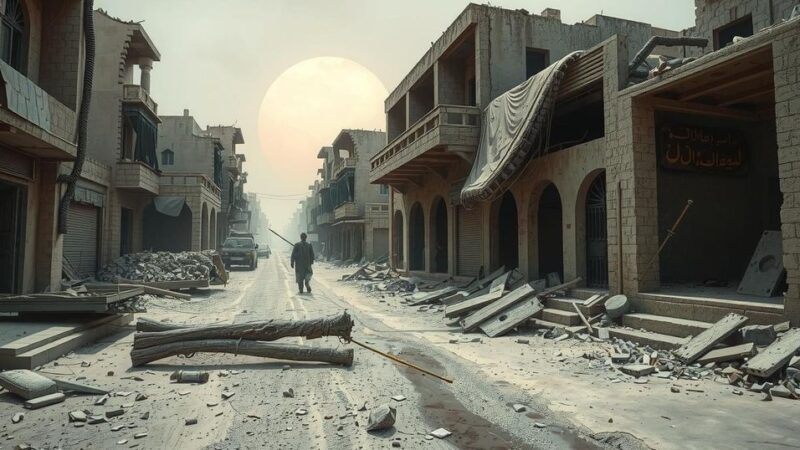The Alawite community in Syria has faced significant violence, with the UN reporting 111 civilian deaths in recent sectarian killings. A new Syrian fact-finding committee aims to hold perpetrators accountable, despite skepticism about its credibility. Critics highlight a lack of international media attention towards the crisis, emphasizing the need for global awareness and intervention.
The recent violence affecting the Alawite community on Syria’s west coast has been substantial, with the United Nations human rights office documenting 111 civilian deaths, although actual numbers are believed to be higher. Notably, 90 fatalities were male, 18 female, and three were children, reflecting the brutal sectarian killings carried out in this region amidst the ongoing insurgency supporting Bashar al-Assad.
Reports indicated that entire families, including women and children, fell victim to these attacks, raising urgent calls for accountability. A Syrian fact-finding committee has emerged to investigate these incidents, asserting that everyone must be held accountable, though skepticism remains regarding the sincerity of this claim.
The media’s response to these conflicts requires critical analysis, as past violence in Syria illustrates a troubling trend of neglect towards certain communities, such as the Alawites, about which there has been little international awareness. With the overthrow of Assad’s regime by Hay’at Tahrir al-Sham, the landscape remains perilous, especially the Alawite minorities facing ethnic cleansing by the new governing forces.
In an effort to unify various factions, a new agreement between Ahmed al-Sharaa’s forces and the Kurdish-led Syrian Democratic Forces (SDF) has been established, which may potentially reshape alliances but raises concerns due to the SDF’s contentious status with Turkey. Observers express hope for a resolution forthcoming from the fact-finding committee, which promises to diligently report findings.
Domestic voices, such as those from the Alawite community, highlight the gravity of their situation, illustrating widespread fear and destruction. A local civilian contractor emphasized the dire existence of their communities, which are being systematically erased under the ongoing conflict. His calls for international support underline the urgent need for protective measures as conditions worsen.
Critics point out that international media has been largely silent regarding this crisis, suggesting this may stem from a reluctance to scrutinize a regime that has gained favor in diplomatic circles. The Foreign Minister of Israel, Gideon Sa’ar, has characterized discussions about the political transitions in Syria as disingenuous, cautioning that the current government is not democratically elected but rather a militant force. This reinforces the need for vigilance regarding the evolving situation in Syria, especially in light of the Alawite community’s suffering.
The recent reports of violence against the Alawite community in Syria unveil a grave humanitarian crisis that has garnered insufficient international media attention. While documenting substantial casualties and asserting calls for accountability, skepticism about the sincerity of local governance persists. The violence reflects a broader trend of neglect from the global community, necessitating urgent intervention and support for the affected populations. As strategic alliances shift within Syria, it remains imperative for the international community to remain vigilant and proactive in addressing these urgent humanitarian concerns.
Original Source: www.jpost.com






